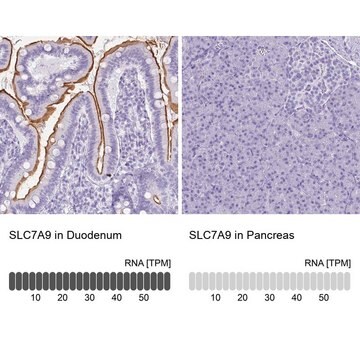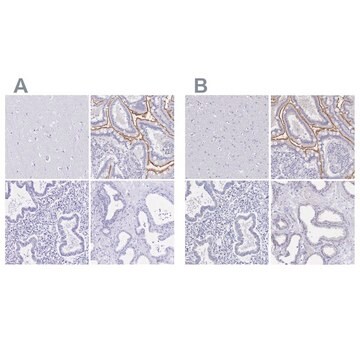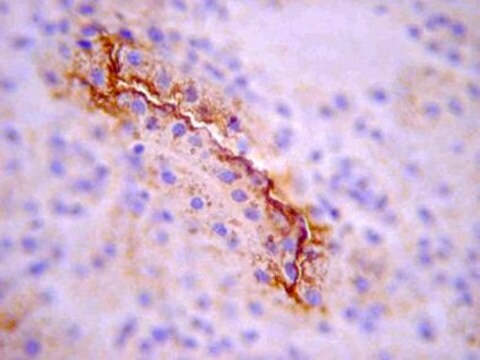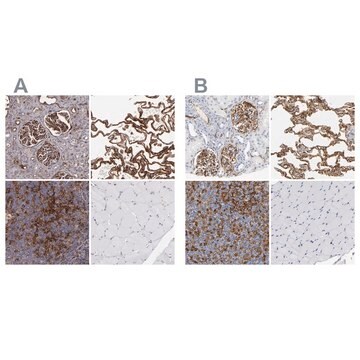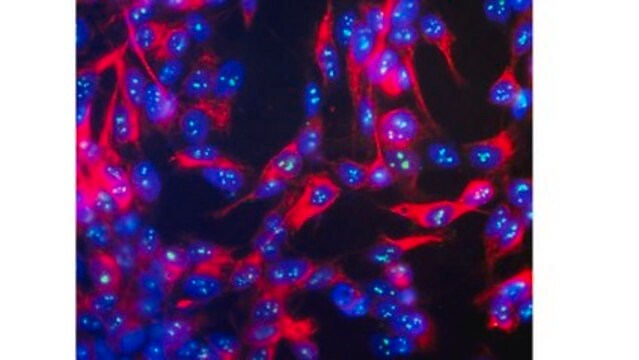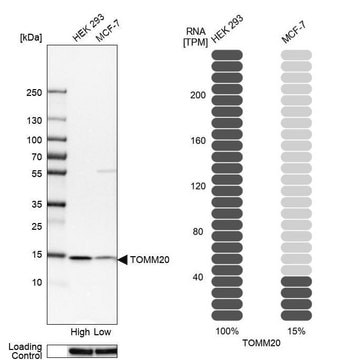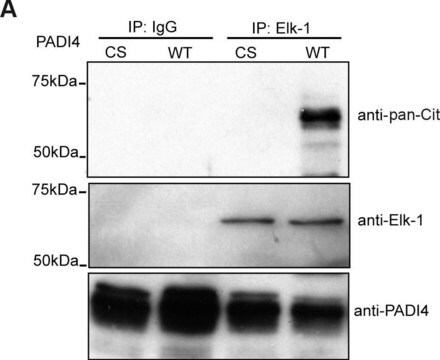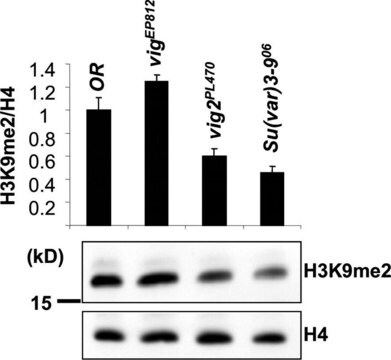ZRB2758
Anti-SGLT-1 Antibody, clone 1K16 ZooMAb® Rabbit Monoclonal

recombinant, expressed in HEK 293 cells
Sinonimo/i:
High affinity sodium-glucose cotransporter, Na(+)/glucose cotransporter 1, Sodium/glucose cotransporter 1, Solute carrier family 5 member 1
About This Item
Prodotti consigliati
Origine biologica
rabbit
Livello qualitativo
Ricombinante
expressed in HEK 293 cells
Coniugato
unconjugated
Forma dell’anticorpo
purified antibody
Tipo di anticorpo
primary antibodies
Clone
1K16, recombinant monoclonal
Descrizione
recombinant, expressed in HEK 293 cells
Nome Commerciale
ZooMAb® learn more
Stato
lyophilized
PM
calculated mol wt 73.5 kDa
observed mol wt ~62 kDa
Purificato mediante
using Protein A
Reattività contro le specie
human, rat
Confezionamento
antibody small pack of 25
Convalida avanzata
recombinant expression
Learn more about Antibody Enhanced Validation
tecniche
affinity binding assay: suitable
immunofluorescence: suitable
immunohistochemistry: suitable
western blot: suitable
Isotipo
IgG
Sequenza dell’epitopo
C-terminal half
N° accesso ID proteina
N° accesso UniProt
Condizioni di spedizione
ambient
Temperatura di conservazione
2-8°C
Informazioni sul gene
human ... SLC5A1(6523)
Descrizione generale
Specificità
Immunogeno
Applicazioni
Evaluated by Western Blotting in HepG2 cell lysate.
Western Blotting Analysis: A 1:1,000 dilution of this antibody detected SGLT-1 in HepG2 cell lysate.
Tested Applications
Western Blotting Analysis: A 1:1,000 dilution from a representative lot detected SGLT-1 in C6 cell lysates.
Affinity Binding Assay: A representative lot of this antibody bound SGLT-1 peptide with a KD of 9.5 x 10-7 in an affinity binding assay.
Immunofluorescence Analysis: A 1:1,000 dilution from a representative lot detected SGLT-1 in Human small intestine tissue sections.
Immunohistochemistry (Paraffin) Analysis: A 1:1,000 dilution from a representative lot detected SGLT-1 in Human small intestine tissue sections.
Note: Actual optimal working dilutions must be determined by end user as specimens, and experimental conditions may vary with the end user.
Descrizione del bersaglio
Stato fisico
Stoccaggio e stabilità
Note legali
Esclusione di responsabilità
Non trovi il prodotto giusto?
Prova il nostro Motore di ricerca dei prodotti.
Codice della classe di stoccaggio
11 - Combustible Solids
Classe di pericolosità dell'acqua (WGK)
WGK 1
Punto d’infiammabilità (°F)
Not applicable
Punto d’infiammabilità (°C)
Not applicable
Scegli una delle versioni più recenti:
Certificati d'analisi (COA)
It looks like we've run into a problem, but you can still download Certificates of Analysis from our Documenti section.
Se ti serve aiuto, non esitare a contattarci Servizio Clienti
Possiedi già questo prodotto?
I documenti relativi ai prodotti acquistati recentemente sono disponibili nell’Archivio dei documenti.
Il team dei nostri ricercatori vanta grande esperienza in tutte le aree della ricerca quali Life Science, scienza dei materiali, sintesi chimica, cromatografia, discipline analitiche, ecc..
Contatta l'Assistenza Tecnica.